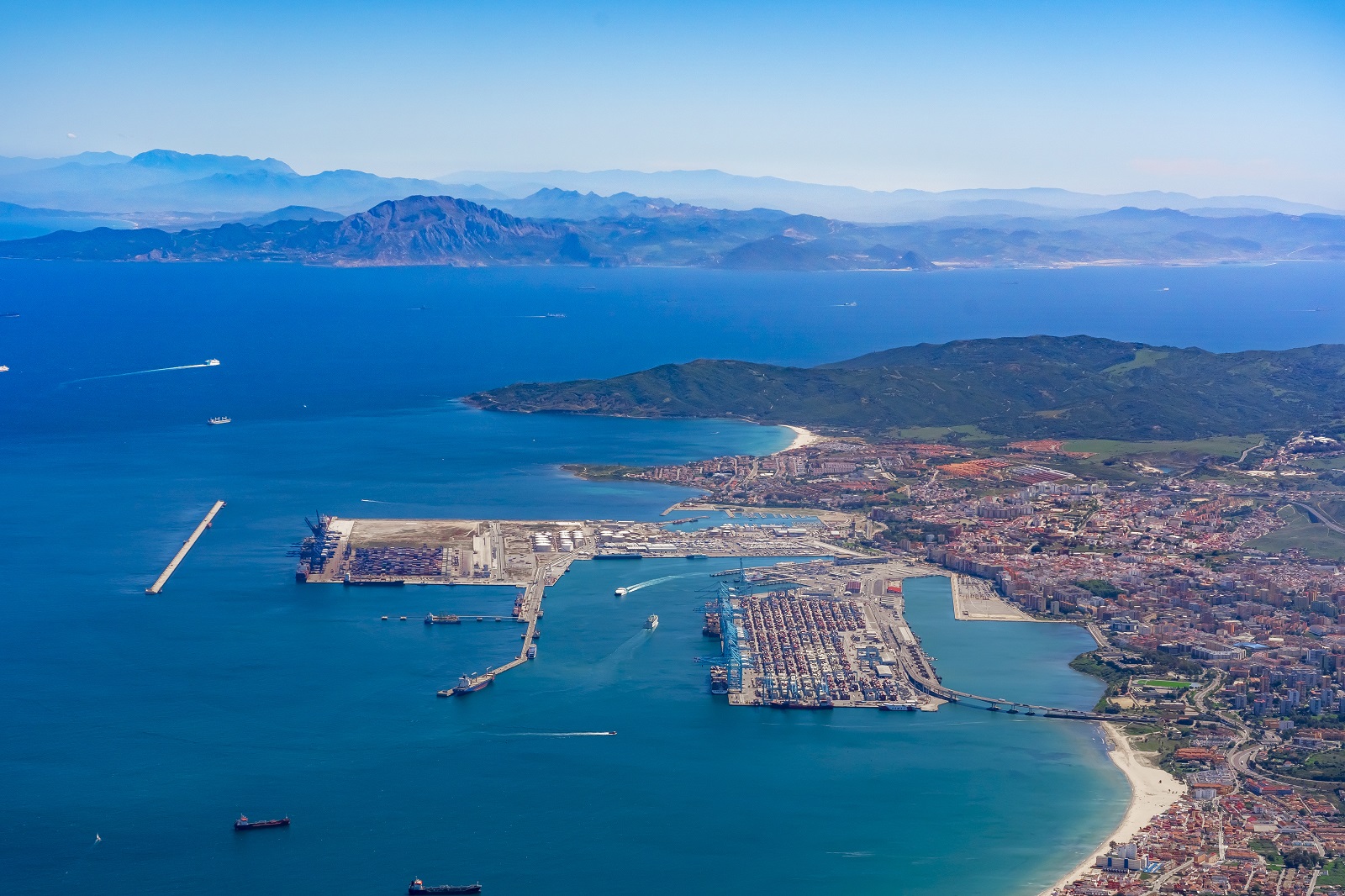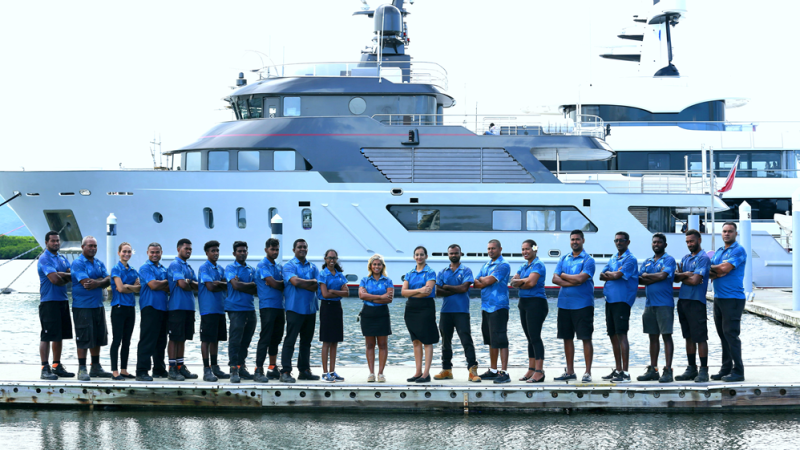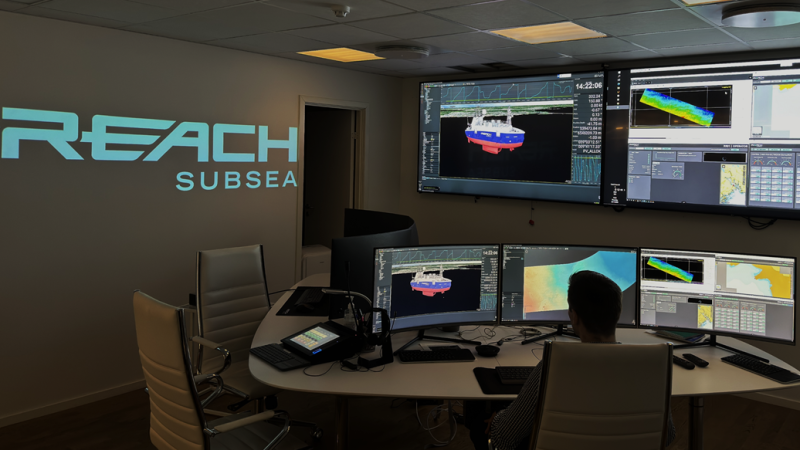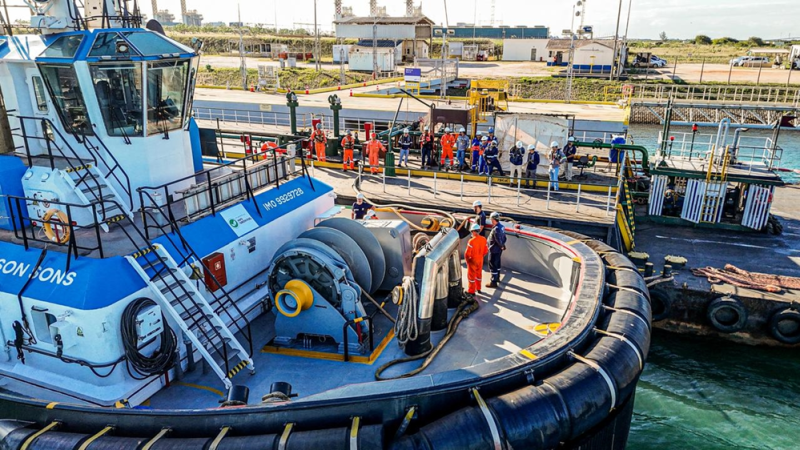The Port of Algeciras, a city located in the autonomous community of Andalusia, Spain, is a passenger and global cargo port administered by the Port of Algeciras Bay Authority (APBA) that manages the ports of Algeciras Bay and Tarifa.
Gerardo Landaluce, APBA Chairman and President says: “The Port of Algeciras is one of the five largest ports in Europe, with over 107 million tonnes of cargo handled last year. Our port authority is the largest in Spain in terms of the volume of activities and the volume of traffic handled.”
The port welcomes different types of traffic from container and bulk to Ro-Ro and passenger vessels, with container ships representing the largest amount. In November last year, the Port of Algeciras reached the figure of 1,000 megaships – container ships that can carry between 16,000 and 24,000 TEUs – a remarkable achievement, enabled by a decades-old public and private commitment to providing the quay lines at the Port of Algeciras with the draughts, fenders and cranes capable of accommodating these ships with ease.
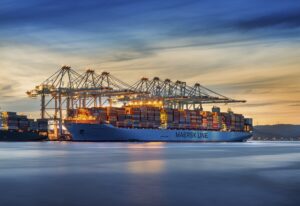 “Passenger and Ro-Ro traffic is just as important to us. Each year over 6.1 million passengers and more than 400,00 HGVs pass through the ports of Algeciras and Tarifa, and we work in close cooperation with those of Ceuta, Tanger Med and Tanger Ville, located in Northern Africa,” Mr Landaluce pointed out.
“Passenger and Ro-Ro traffic is just as important to us. Each year over 6.1 million passengers and more than 400,00 HGVs pass through the ports of Algeciras and Tarifa, and we work in close cooperation with those of Ceuta, Tanger Med and Tanger Ville, located in Northern Africa,” Mr Landaluce pointed out.
Mr Landaluce knows the activities related to the port’s operation inside out. He has been the Authority Chairman for four years but prior to his current role, he served for 20 years as the Deputy Managing Director responsible for the business and trading.
“Given the strategic importance of the port and its size, the tasks have been both rewarding and challenging, making every day different and interesting. We basically serve as a maritime bridge between Europe and Africa, but it is not just about the port. We are also closely interlinked with a large industrial complex nearby and are a key employer in the region, providing 30,000 direct and indirect jobs.”
Strategic location
The Port of Algeciras boasts a unique location – it is an obligatory stop for more than 120,000 ships that pass through the Strait every year. That is a huge challenge but one that has been traditionally handled extremely well.
Last year, the Port of Algeciras was ranked (again) in the World Bank and S&P Global’s study as the most efficient port in Europe. The study also confirmed the Strait of Gibraltar as one of the areas with the highest level of performance in the world: all of that, in a year characterised by worldwide port log-jams and supply chain disruptions.
“The Strait of Gibraltar is one of the four key passage points in maritime transport in the world, in fact, linking not two but four of the continents worldwide – Asia, Europe, America and Africa. Its strategic location is critical but this element is not enough; we have to add value to our offer,” Mr Landaluce affirms.
Therefore, the Authority has invested substantially over the years in a modern structure including a 25 km long quay. “The combination of natural conditions and the modern structure enables a very efficient operation. This is one of the reasons why the port is regarded not only as the most efficient in Europe but is also ranked amongst the most efficient ports worldwide.”
“This has been greatly aided by our focus on innovation and cooperation with the community, which has recognised the port as an important contributor to its wellbeing,” he points out, adding that social responsibility has always been an integral part of the Authority’s strategy.
Pan-European connection
Mr Landaluce explains that the Port of Algeciras Bay has been developing active participation in the European agenda within the organisations of which it is a member: the European Sea Ports Organization (ESPO) and the Association of Mediterranean Ports (MEDPORTS), as well as within the forums of the Atlantic and Mediterranean Corridors of the Trans-European Transport Network (RTE-T).
The rail link to the Port of Algeciras Bay via the Algeciras-Bobadilla-Madrid railway line has been declared a double priority by the European Commission and EU Parliament on passing the “Connecting Europe Facility” regulations and the Trans-European Transport Network Guidelines.
“It’s extremely important to develop land connectivity. This is not only about roads but primarily about rail, the most sustainable means of land transport. We handle almost half a million trucks each year, and this amount needs to be moved inland via inter-modal links.”
“Therefore, we are promoting, together with the Spanish government and the private sector, the “railway motorway”, the Zaragoza-Algeciras route, an important rail freight transport line, connecting northern Spain with the south, enabling smooth cargo shipment in both directions. And, primarily, to achieve a reduced environmental footprint.”
An important role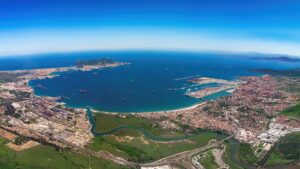
He affirms that the Port of Algeciras fully supports the EU’s Green Deal and collaborates with other ports in drafting the final EU ETS (Emissions Trading System) Directive, with a view to achieving climate neutrality in the EU by 2050.
“The energy dimension in ports is one of the key topics. As one of the largest bunkering ports in the Mediterranean, we have been working closely with maritime operators on the fuel transition towards biofuels. Additionally, we are working hard with our main industrial operators in the Bay in order to be able to support the development of green hydrogen for the future needs of the industry.”
In conclusion, Mr Landaluce reflects that ports, large or small, tend to be a good thermometer of the economy and have an important role in the community. “The Port of Algeciras has played that role for years, having learned how to best serve not only its closest community but the community in a wider sense, from the European perspective. That is a big responsibility, one that the Port of Algeciras has taken very seriously.”
‘The European Union with its geo-economical and geo-strategic position can play a major part in strengthening political as well as economic relations with North Africa. “We have been promoting this collaboration for decades and will continue do to so, in order to bring people, culture and business closer.”
